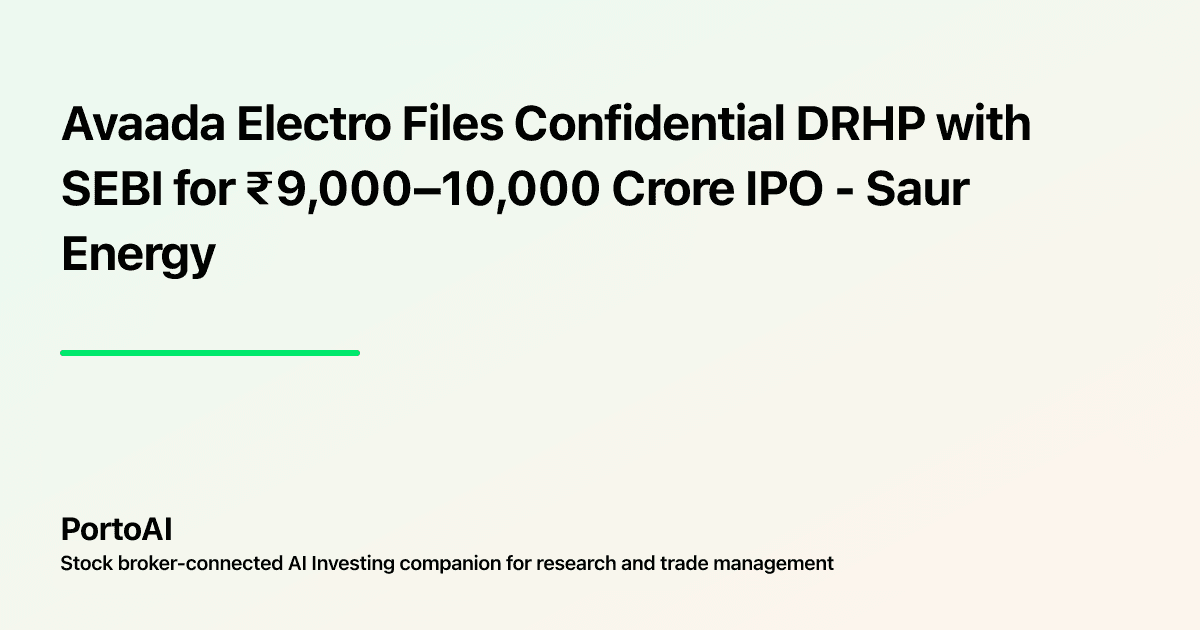Understanding Dividend Record Date vs. Ex-Dividend Date for Investors

Venkateshwar Jambula
Lead Market Researcher
4 min read
•Published on September 10, 2024
•Mastering Dividend Dates: Record Date vs. Ex-Dividend Date Explained
In the realm of corporate actions, understanding the precise timing of dividend distributions is crucial for any sophisticated investor. While capital appreciation often captures the spotlight, dividends represent a tangible share of a company's profits, directly benefiting shareholders. For those who rely on consistent income or aim for long-term wealth accumulation, grasping the nuances of dividend dates is not merely beneficial – it's essential.
This guide will demystify two pivotal dates in the dividend process: the Record Date and the Ex-Dividend Date. By comprehending their distinct roles, you can ensure you are strategically positioned to capture dividend payments and make informed investment decisions.
The Dividend Record Date: Identifying Eligible Shareholders
The Record Date is the date set by a company's board of directors to determine which shareholders are officially registered to receive a declared dividend. Think of it as the snapshot date – on this specific day, the company compiles a list of all individuals and entities whose names appear on its official shareholder registry.
Significance of the Record Date:
- Dividend Eligibility: Shareholders listed on the company's books as of the Record Date are entitled to the upcoming dividend payment.
- Access to Corporate Information: This date also often dictates who receives important corporate communications, such as annual reports, proxy statements, and other financial disclosures.
For investors utilizing platforms like PortoAI, understanding the Record Date is key to confirming your entitlement to dividends announced through PortoAI's Market Lens, ensuring no payout is missed due to administrative oversight.
The Ex-Dividend Date: The Crucial Cut-Off for Trading
The Ex-Dividend Date (often shortened to Ex-Date) is the date on which a stock begins trading without the value of the next upcoming dividend payment. This date is established by the stock exchange, not the company itself, and is critical for determining who will actually receive the dividend.
Key Aspects of the Ex-Dividend Date:
- Dividend Entitlement: If you purchase a stock on or after the Ex-Dividend Date, you will not receive the upcoming dividend. The dividend will be paid to the seller.
- Preceding Ownership: Conversely, if you buy the stock before the Ex-Dividend Date, you are entitled to the dividend, even if the settlement of the trade occurs after the Record Date.
This date reflects the market's adjustment for the dividend that will soon be paid out. It's a vital metric for traders and income-focused investors alike.
Record Date vs. Ex-Dividend Date: A Critical Distinction
While both dates are fundamental to the dividend process, they serve different purposes and are set by different entities:
- Record Date: Set by the company; identifies who is on the shareholder register on that day.
- Ex-Dividend Date: Set by the stock exchange; determines who is entitled to the dividend based on trade settlement.
The primary purpose of the Ex-Dividend Date is to align with the stock market's settlement cycle. In most major markets, including India's T+2 system, trades take two business days to settle. Therefore, the Ex-Dividend Date is typically set two business days before the Record Date.
How the Dates Intersect: The T+2 Settlement Cycle
Let's illustrate with an example, assuming a T+2 settlement cycle:
- Company Declares Dividend: Announces a Record Date of May 15th.
- Ex-Dividend Date Calculation: The stock exchange sets the Ex-Dividend Date two business days prior, making it May 13th.
What this means for investors:
- To receive the dividend: You must purchase the stock before May 13th. If you buy on May 12th, the trade settles on May 14th. Even though the Record Date is May 15th, your name will be on the shareholder list by then, entitling you to the dividend.
- If you buy on or after May 13th: The trade settles on or after May 15th. Since you are not the owner of record on May 15th, the seller of the shares will receive the dividend.
This interplay highlights why precise timing is paramount. PortoAI's sophisticated analytics can help identify dividend-paying stocks and alert you to critical dates, ensuring you execute trades within the optimal window.
Conclusion: Strategic Dividend Capture
Navigating the complexities of dividend dates is essential for maximizing returns and ensuring you receive the income you are entitled to. The Ex-Dividend Date dictates your eligibility based on trading, while the Record Date confirms your name on the company's official registry.
By understanding the relationship between these dates and the underlying settlement cycles, investors can make more informed decisions. Tools like PortoAI provide the data-driven insights necessary to stay ahead, allowing for confident execution of dividend-capturing strategies and reinforcing disciplined, intelligent investing for long-term wealth creation.
Blog
Investment Insights and Tips
Explore our latest investment strategies and insights.

Stocks
Suzlon Energy Q2 FY26 Results: PAT soars 538% YoY to Rs 1,279 crore, highest in 30 years; revenue jumps 85%
Suzlon Energy, an Indian renewable energy solutions provider, reported a record-breaking performance for Q2 FY26, with consolidated Profit After Tax (PAT) surging 538% year-on-year to Rs 1,279 crore, marking its...
Venkateshwar Jambula
November 5, 2025
•4min

Stocks
Groww IPO set to open: Does valuation and GMP leave room for any listing gains?
Groww’s Rs 6,632 crore IPO, one of India's biggest fintech listings, is met with cautious optimism. While strong fundamentals and profitability are noted, a steep valuation and regulatory uncertainty could...
Venkateshwar Jambula
November 4, 2025
•5min

Stocks
Softbank-backed Meesho, Zomato-backed Shiprocket among 7 companies to get Sebi's approval for IPO launch
India's capital markets regulator, Sebi, has granted approval for the launch of Initial Public Offerings (IPOs) to seven companies, including prominent e-commerce players Meesho (Softbank-backed) and Shiprocket (Temasek-backed). These approvals...
Venkateshwar Jambula
November 4, 2025
•5min

Stocks
Avaada Electro Files Confidential DRHP with SEBI for ₹9,000–10,000 Crore IPO - Saur Energy
Note: Broker connections are subject to availability and your broker’s terms.
Venkateshwar Jambula
November 2, 2025
•6min